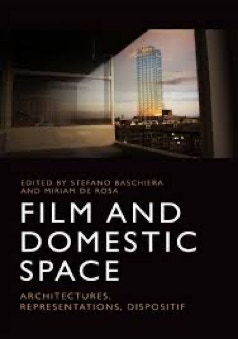

Published Episodes C
Click here to read about the published episodes:
#Episode 1 | Barbara Flückiger
#Episode 5 | Noemi Daugaard | Melanie Bell
#Episode 6 | Stefanie Eckert | Kerstin Fröber
#Episode 7 | Gilbert Motsaathebe | Adelheid Heftberger | Guido Kirsten
#Episode 8 | Sarah-Mai Dang | Franziska Heller | Francesco Bono
#Episode 9 | Jan-Christopher Horak | Miriam De Rosa and Stefano Baschiera
#Episode 10 | Raya Morag | Astrid Korporaal
#Episode 11 | Boukary Sawadogo | Jeanette Toussaint
# Special Episode | Interview with the podcasters Susanne Braun, Yugen Yah and Will DiGravio

#Episode 1 | Barbara Flückiger
Barbara Flückiger
Credit: Martin Weiss, ERC Advanced Grant FilmColors.
Oliver Hanley (*1984, Belfast) is a film historian and preservationist. After graduating from the University of Amsterdam's professional MA programme in Preservation and Presentation of the Moving Image in 2008, he worked on various web projects and exhibitions at the Deutsche Kinemathek in Berlin. From 2011 to 2016 he was responsible for DVD and web publications as well as restoration and digitisation projects at the Austrian Film Museum in Vienna. Since December 2016, he has been working at the Film University Babelsberg, where he teaches on the Film Heritage MA programme. He is a member of FIAF's Programming and Access to Collections Commission.
Links related to the conversation I had with Oliver Hanley:
Fassungslos! Ein anderer Blick auf Filmklassiker
MA program Film Heritage at Film University Babelsberg
#Episode 3 | Joan Neuberger
- • Bling of the month: Interview with Joan Neuberger
- • News: Journal Apparatus
- • News: Article on Star Wars from the University of Sydney
- • Dear Diary: Film Studies and "Small disciplines "
Barbara Flueckiger has been professor for film studies at the University of Zurich since 2007. Before her studies in film theory and history, she worked internationally as a film professional. Her research focuses on the interaction between technology and aesthetics. She published two standard text books, Sound Design and Visual Effects. Since 2001 she has developed and led many research projects. In 2015 she was awarded the prestigious Advanced Grant by the European Research Council for a research project on the technology and aesthetics of film colors plus in 2018 a proof of concept for the development of a multispectral, versatile film scanner.
Links related to the conversation I had with Barbara Flückiger:
Fifth International Conference Colour in Film London, March 11 to 13, 2020, Location: BFI Southbank, Belvedere Rd, Lambeth, London SE1 8XT, Great Britain
ERC Advanced Grant FilmColors. Bridging the Gap Between Technology and Aesthetics
Barbara Flückiger, Eva Hielscher, Nadine Wietlisbach (eds.)
Color Mania. The Material of Color in Photography and Film
Digital Tools for the analysis of Film Colors
SNSF Agora: Presentation and Visualization of Historical Film Colors
Timeline of Historical Film Colors
SNSF Film Colors. Technologies, Cultures, Institutions
ERC Proof of Concept: Development of a New Versatile Archival Film Scanner (VeCoScan)
SNSF Autonomous Film Colors in Animation and Digital Productions. An Intercultural Comparison
#Episode 2 | Oliver Hanley
- • Bling of the month: Interview with Oliver Hanley
- • News: Study on female directors of top films from the USC Annenberg Inclusion Initiative
- • Dear Diary: A special kind of research at the beginning of a research project

Oliver Hanley

Joan Neuberger
Credit: Matt Valentine
Joan Neuberger is Professor of History at the University of Texas at Austin. Her publications include Hooliganism: Crime and Culture in St Petersburg, 1900-1914 (California: 1993), Ivan the Terrible: The Film Companion (Palgrave: 2003); and co-editor of Imitations of Life: Melodrama in Russia (Duke: 2001) and Picturing Russia: Explorations in Visual Culture (Yale: 2008); and The Flying Carpet: Studies on Eisenstein and Russian Cinema in Honor of Naum Kleiman (Mimésis International. 2017). Her most recent book is This Thing of Darkness: Eisenstein’s Ivan the Terrible in Stalin’s Russia (Cornell: 2019). Prof. Neuberger is also Founding Editor of the public history website, Not Even Past and co-host, with Christopher Rose, of the history podcast series, 15 Minute History.
Links related to the conversation I had with Joan Neuberger:
#Episode 4 | Dustin Condren
- • Bling of the month: Interview with Dustin Condren
- • News: NECS and the NECS Conference
- • Dear Diary: The research project "The cinematic face of cities"
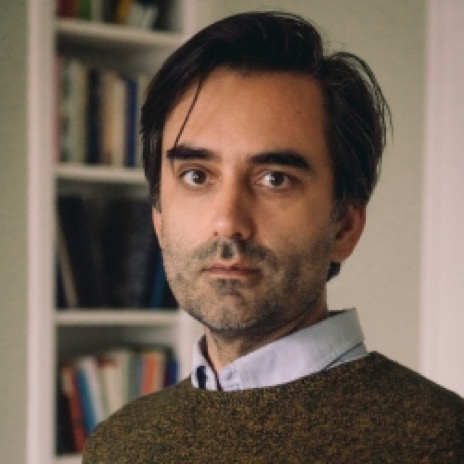
Dustin Condren
Dustin Condren is Assistant Professor of Russian in the Department of Modern Languages, Literatures, and Linguistics. His research focuses primarily on the literature and intellectual culture of the early Soviet period, and the visual and physical forms (cinema, photography, painting, performance) that often frame them. His current book project analyzes six of Soviet filmmaker and theoretician Sergei Eisenstein's major articulated but unrealized film projects of the late nineteen twenties and early thirties, and uses their non-film archival remnants to both imagine their intended onscreen projection and to probe their failures for insight into the development of the director’s—and the medium’s—expressive and significative possibilities.
Professor Condren teaches courses on nineteenth- and twentieth-century prose, poetry, and dramatic literature; Russian and Soviet cinema; and upper-level Russian language. He received his PhD in Slavic Languages and Literatures from Stanford University.
#Episode 5 | Noemi Daugaard
• Bling of the month: Interview with Noemi Daugaar
• News: Melanie Bell on the IAMHIST Challange 2020
• Dear Diary: My citizen science project „The cinematic face of Potsdam“ I
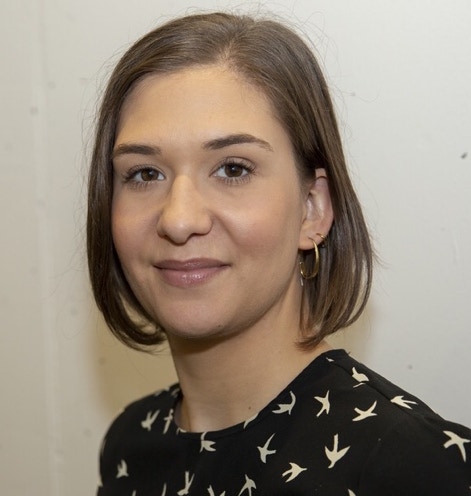
Noemi Daugaard
Noemi Daugaard is a PhD candidate at the University of Zurich. In the framework of the research project Film Colors. Technologies, Cultures, Institutions, funded by the Swiss National Science Foundation, she investigates the emergence of early color film technologies (1890-1940) and their interrelation with cultural norms, discursive practices and ideological currents. She’s interested in notions and negotiations of identity in relation to discourses on beauty, consumption, skin color, and nationalism, as well as in the epistemological foundations that feed into the development of color film technology. Furthermore, she’s a regular contributor to the Timeline of Historical Film Colors.

Melanie Bell
Melanie Bell is an Associate Professor in Film and Media at the University of Leeds, UK. She has a BA in Literature and History, an MA in Cinema Studies, and PhD in Film and Gender from the University of Hull’s Centre for Gender Studies. She has taught courses in British cinema history, Hollywood film, and feminist media studies at the Universities of Hull, Portsmouth, Newcastle and Leeds. Her recent research investigates the economic and creative contribution of women to historical British film production – as stars, industry workers and creative ‘elites’ – and has been published in Feminist Media Histories, Screen and the Historical Journal of Film, Radio and Television. Her next publication Work! A Feminist History of Women and Film will be published by the University of Illinois Press in 2020. Melanie has worked extensively with trade union records and oral history, and is currently pursing research in feminist archives, archiving and historiography.
Links related to the conversation I had with Noemi Daugaard and Melanie Bell:
33. Film- und Fernsehwissenschaftliche Kolloquium
Timeline of Historical Film Colors
#Episode 6 | Stefanie Eckert
• Bling of the month: Interview with Stefanie Eckert
• News: Kerstin Fröber on the study „In the dark cube: Movie theater context enhances the valuation and aesthetic experience of watching films“
• Dear Diary: My citizen science project „The cinematic face of Potsdam“ II

Stefanie Eckert
Stefanie Eckert studied media studies at the Hochschule für Film und Fernsehen "Konrad Wolf" (Germany) and has been working in various positions for the DEFA Foundation since 2001. As a long-standing advisor to the Board of Directors of the Foundation, she is very familiar with the DEFA's film stock and knows about the technical, cultural-political and financial peculiarities and challenges in dealing with the DEFA film heritage. In 2008, her book „Das Erbe der DEFA: Die fast unendliche Geschichte einer Stiftungsgründung“ was published in the DEFA Foundation's publication series.
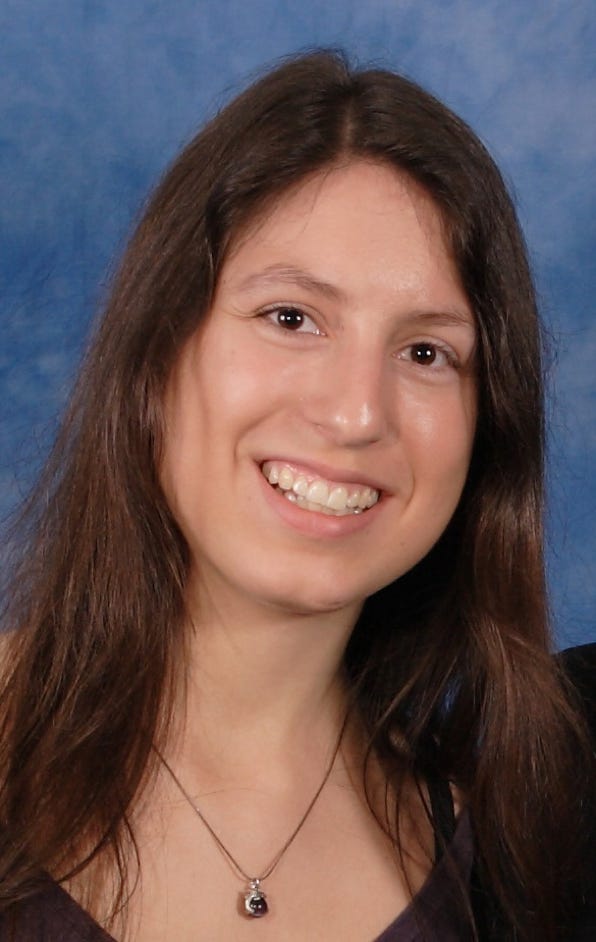


Links related to the conversation I had with Stefanie Eckert and Kerstin Fröber:
Das Erbe der DEFA: Die fast unendliche Geschichte einer Stiftungsgründung
The Podcast is licensed under the Creative Commons Attribution-NonCommercial-NoDerivatives 4.0 International (CC BY-NC-ND 4.0). This license allows reusers to copy and distribute the material in any medium or format in unadapted form only, for noncommercial purposes only, and only so long as attribution is given to the creator.



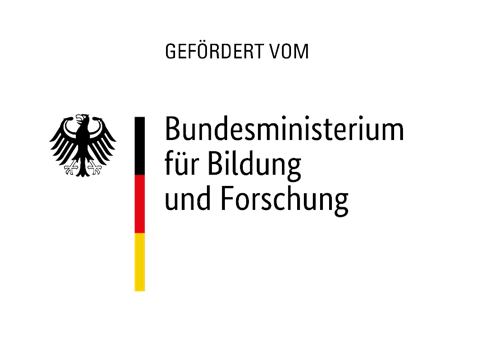
#Episode 7 | Gilbert Motsaathebe
• Bling of the month: Interview with Gilbert Motsaathebe
• News: Adelheid Heftberger on the Summer School „Digital Archives. Data Literacy and Presentation Strategies in Audiovisual Archives“
• Gespräch mit Guido Kirsten über die soziale Rolle von (Film-)Wissenschaftler*innen

Gilbert Motsaathebe
Gilbert Motsaathebe, Ph.D. is a professor in the Department of Journalism, Film and Television at the University of Johannesburg in South Africa. He previously taught at the United Arab Emirates University in the UAE and the Cape Peninsula University of Technology in South Africa. He also lived and taught in Japan and India, where he was a SEPHIS fellow. Prior to joining academia, he worked as News Producer and Output Editor for television stations such as Bop Television, SABC and e-TV, before rendering his services as Manager of Communication and Media Relations for the North West Provincial Government in South Africa. His research interests include topics on feminist film criticism, post-apartheid films, media and gender, journalism education and practice, African rhetoric and multiculturalism. He has published extensively in accredited peer-reviewed publications, and he is a regular speaker at national and international conferences in the areas of Film, Journalism, Communication and Media Studies.

Guido Kirsten
Guido Kirsten, Dr., is the PI of the Emmy Noether research group “Cinematic Discourses of Deprivation: Analysing the Representation of Precarity and Exclusion in European Fiction Film and Documentary” at the Film University Babelsberg KONRAD WOLF (Potsdam). Among his research topics are questions of representation and audio-visual discourse and narration, questions of proximity and distance in the cinema, and the history of film and film theory. He is the author of Filmischer Realismus (2013) and co-editor of Christian Metz and the Codes of Cinema: Film Semiology and Beyond (Amsterdam University Press 2018; together with Margrit Tröhler). Since 2007 he has been an editor of the film and television studies journal Montage AV, for which he co-edited issues on André Bazin (2009), the sociology of film in French filmology (2010), film and politics (2014), Roland Barthes’ film related writings (2015), new film distribution (streaming and BitTorrent; 2017), and questions of proximity and distance (2019).
Links related to the conversation I had with Gilbert Motsaathebe, Adelheid Heftberger and Guido Kirsten:
#Episode 8 | Sarah-Mai Dang
• Bling of the month: Interview with Sarah-Mai Dang
• News: Franziska Heller on her book „Update! Film- und Mediengeschichte im Zeitalter der digitalen Reproduzierbarkeit“ (Wilhelm Fink 2020)
• Gespräch mit Francesco Bono über die Auswirkungen von Corona auf Lehre und Forschung
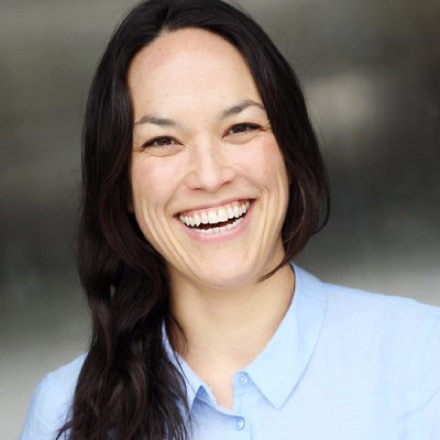
Sarah-Mai Dang
Sarah-Mai Dang, Dr., is a Postdoctoral Researcher in Media Studies at Philipps University Marburg, Germany. She received her doctoral degree in Film Studies from Freie Universität Berlin and a Master of Arts from the University of Michigan. She published her dissertation on aesthetic experience and feminist theory with Palgrave Macmillan (2016) and as a hybrid self-publishing project on her websiteoabooks.de, where she also blogs about academic publishing. She was fellow of the „Open Science Program" (funded by Wikimedia, Stifterverband, VolkswagenStiftung) and initiated the GfM scholarly interest group "Open Media Studies"and the Open Media Studies Blog with ZfM. She holds numerous posts including member of the Steering Committee of MediArXiv, the IT Advisory Board of Philipps University Marburg, the Scientific Advisory Board ofadlr.link. Her current research and teaching focus on digital film historiography, scholarly media practices, open science, feminist theory, and media aesthetics. She is the project leader of the DFG Research Network "New Directions in Film Historiography" (2019-2022).
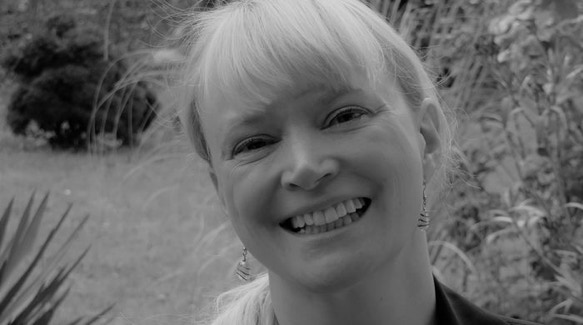
Franziska Heller
Franziska Heller is Visiting Professor funded by the FONTE-foundation at the Film University Babelsberg KONRAD WOLF in Potsdam (GE). She holds a Venia Legendi in Film and Media Studies (Privatdozentin), awarded by the Faculty of Arts and Social Sciences of the University of Zurich (CH), where she also teaches at the Department of Film Studies. She obtained her PhD at the Ruhr-University Bochum (GE) in 2009. Besides numerous articles on digital culture, film/media theory and film/media historiography, she is also the author of several monographs. In 2010, she published Filmästhetik des Fluiden, on the narratological as well as phenomenological relationship of film aesthetics and fluidity, (https://www.fink.de/katalog/titel/978-3-7705-4949-8.html), and in 2015 she published Alfred Hitchcock, Einführung in seine Filme und Filmästhetik, on Alfred Hitchcock and his film aesthetics, (https://www.fink.de/katalog/titel/978-3-7705-5783-7.html). Her new book Update! Film and Media History in the Age of Digital Reproducibility has just been published in open access; download available here: https://www.fink.de/view/title/55287
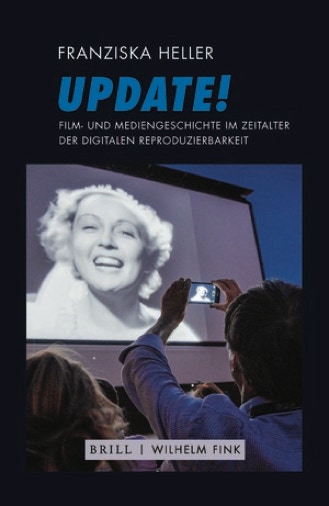

Francesco Bono
Francesco Bono is an Associate Professor of film history at the University of Perugia. His primary field of research is Italian, German and Austrian cinema between the two world wars. He has contributed to several Italian and European film journals, and his books include Schermi d’Europa. Dal Danubio al Baltico (1998), Casta Diva. Percorsi nel cinema italiano fra le due guerre (2004), Kino. Il cinema in Germania dopo la riunificazione (2006) and Willi Forst. Ein filmkritisches Porträt (2010). He has also edited several volumes on Italian, Austrian, and Scandinavian cinema, including Austria (in)felix. Zum österreichischen Film der 80er Jahre (1992), Il giovane Bergman (1944-1951) (1992), Dansk Film (1993), Television in Scandinavia. History, Politics and Aesthetics (1996), Swedish Cinema Today (1996), Elektrische Schatten. Beiträge zur österreichischen Stummfilmgeschichte (1999), Tenöre, Touristen, Gastarbeiter. Deutsch-italienische Filmbeziehungen (2011), and Morte a Venezia. Thomas Mann / Luchino Visconti (2014). Francesco Bono is a member of the Sindacato Nazionale Critici Cinematografici Italiani, the association of Italian film critics. He is in charge of Italian film festivals in Germany, Austria and Switzerland.
Links related to the conversation I had with Sarah-Mai Dang, Franziska Heller and Francesco Bono:

Jan-Christopher Horak
Jan-Christopher Horak is a film historian, film archivist and film curator. He has taught at universities around the world. He was Curator of the film archive at the George Eastman Museum in Rochester. In 1994 he took over the position of director of the Film Museum in Munich from Enno Patalas. From 1998 to 2000 he was Founding Director of the Archives & Collections at Universal Studios in Los Angeles. Afterwards, he was Curator of the Hollywood Entertainment Museum in Hollywood, and from 2007 until 2019 he was Director of the UCLA Film & Television Archive.
In addition to his work as Curator and Museum Director, he has published a vast amount of reviews and scholarly essays, served on the editorial boards of numerous academic journals, edited translations and books, and wrote more than ten books. He is an expert on German filmmakers in American exile and German film history; he published on the intersection of photography and film and the designer Saul Bass. Recently, he has dealt with Black Cinema and Latin American Cinema in Los Angeles. He is currently working on an introductory reader on moving image archiving.
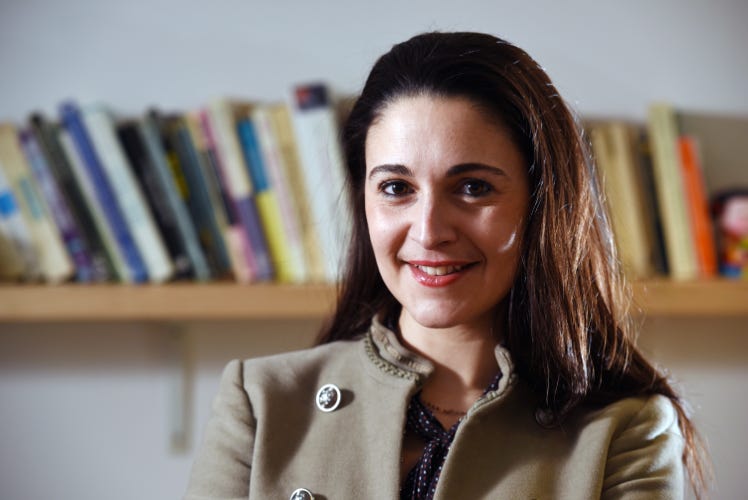
Miriam De Rosa
Miriam De Rosa is Assistant Professor at the Centre for Postdigital Cultures, Coventry University, where she researches on film theories, experimental cinema, artists’ moving images and screen media arts. Among her publications are: Cinema & Postmedia (2013), Post-what? Post-when? (with Vinzenz Hediger, 2017), the recent special issue of NECSUS devoted to the concept of Gesture (2019) and the edited volume Film & Domestic Space (with S. Baschiera, 2020).
De Rosa also works as an independent film and exhibition curator.

Stefano Baschiera
Stefano Baschiera is Senior Lecturer in Film Studies at Queen’s University Belfast. His work on European cinema and film industries has been published in a variety of edited collections and journals including Historical Journal of Film Radio and Television, Bianco e Nero, Studies in European Cinema and The New Review of Film and Television Studies. He is the co-editor with Russ Hunter of the book Italian Horror Cinema Edinburgh University Press (2016). He worked on research projects funded by AHRC, Leverhulme Trust, and EU Horizon2020.
Links related to the conversation I had with Jan-Christopher Horak:
Links related to the conversation I had with Miriam de Rosa and Stefano Baschiera:
Cited literature
Hagener, Malte (2008), ‘Where is Cinema (Today)? The Cinema in the Age of Media Immanence’, Cinéma et Cie., 11(Fall), pp. 15–22.
#Episode 10 | Raya Morag
• Bling of the month: Interview with Raya Morag
- • News: Astrid Korporaal is one of the winners of the IAMHIST Challenge
- • Dear Diary: the discourse theory that I have chosen for my current research project

Raya Morag is an Associate Professor of cinema studies at the Department of Communication and Journalism at the Hebrew University. In her research and in numerous publications she is dealing with documentary cinema; New German Cinema; Vietnam War Films; Israeli and Palestinian second Intifada cinema; New Cambodian cinema; and corporeal-feminist film critique. The interaction of film and trauma studies is as a key feature of her work.
https://scholars.huji.ac.il/rayamorag/home
Books from Raya we are talking about
- • Perpetrator cinema : confronting genocide in Cambodian documentary. Wallflower; 2020.
- • Waltzing with Bashir: Perpetrator Trauma and Cinema. I.B. Tauris; 2013.

Films related to the conversation I had with Raya
Waltz with Bashir (2008, Ari Folman)
https://www.youtube.com/watch?v=ylzO9vbEpPg
To See If I'm Smiling (2007, Tamar Yarom)
https://www.youtube.com/watch?v=Cgsv9LBzWPU
Z32 (2008, Avi Mograbi)
https://www.youtube.com/watch?v=9ysWxMs5xIc
S21 The Khmer Rouge Killing Machine (2003, Rithy Panh)
https://www.youtube.com/watch?v=7uBA1UGI5JE
Enemies of the People (2009, Rob Lemkin and Thet Sambath)
https://www.youtube.com/watch?v=KiO-kcYlgLs
Duch, Master of the Forges of Hell (2012, Rithy Panh)
https://www.youtube.com/watch?v=ao9QbC4nE_E
Red Wedding (2012, Lida Chan and Guillaume Suon)
https://www.youtube.com/watch?v=Z792RyxezVE
Angkar (2018, Neary Adeline Hay)
Astrid Korporaal
Astrid Korporaal is a curator, writer and researcher. She was Founding Director of the Almanac Projects in London and Turin, and Curator of Education Projects at the Institute of Contemporary Arts in London. She has written for a number of publications, including Kaleidoscope, Art Monthly and Rekto Verso. She is currently a PhD candidate at Kingston University of Art, on the subject of 'Peripheral Visions'.
Links related to the conversation I had with Astrid
http://www.framesofrepresentation.com/
https://www.ica.art/films/for20
https://www.thevisibleinstitute.org/
https://www.hoaxpublication.co.uk/search/label/astridkorporaal
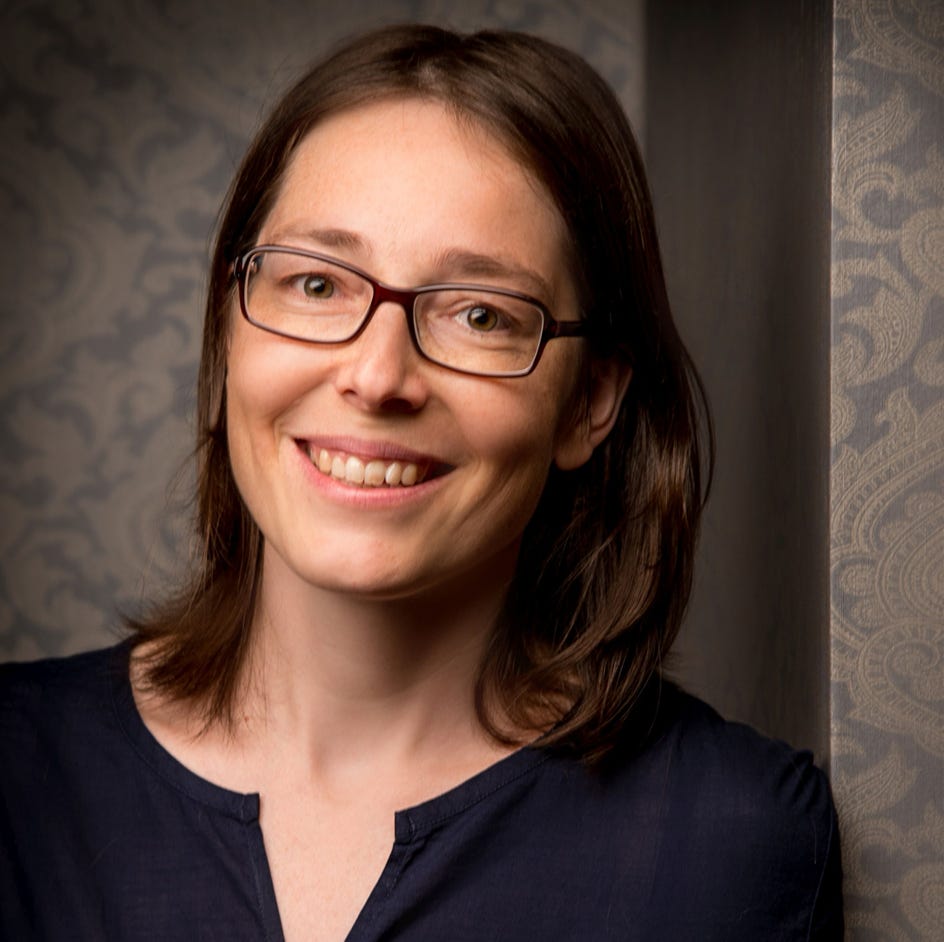
Adelheid Heftberger
Adelheid Heftberger is Head of Film Access at the film department of the German Federal Archive (Berlin). Previously she has held positions at the Brandenburg Center for Media Studies (Potsdam) and the Austrian Film Museum (Vienna) as researcher, curator and archivist. She obtained her PhD in Russian studies and a Masters in Comparative Literature from the University of Innsbruck and Vienna. In 2016 she has also completed Library- and Information Sciences at the Humboldt-University in Berlin. She is a full member of the Cataloging and Documentation Commission of FIAF and active in the Open Science movement.
#Episode 9 | Jan-Christopher Horak
• Bling of the month: Interview with Jan-Christopher Horak
• News: Interview with Miriam De Rosa and Stefano Baschiera on their book "Film and Domestic Space"
• Dear Diary: some thoughts about the writing for a blog

Raya Morag
Ideas, wishes and suggestions for topics or events you want us to report about? Please use the contact form. Or send us a mail a.kiss@filmuniversitaet.de
Please read our privacy policy before contacting us. The contact form and the privacy policy are currently only available in German.
Ideen, Wünsche und Anregungen zu Themen oder Veranstaltungen über die wir berichten sollen? Bitte nutzen Sie das Kontaktformular oder schreiben Sie uns eine Mail unter a.kiss@filmuniversitaet.de. Lesen Sie vor der Kontaktaufnahme bitte unsere Datenschutzerklärung.

